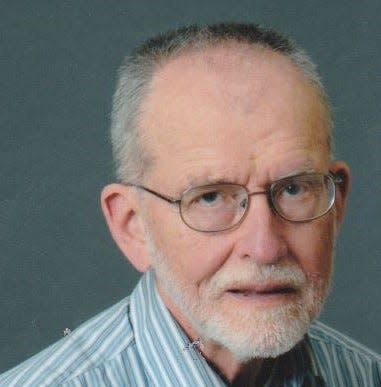Intergenerational justice: What do we owe the future?

According to British philosopher Edmund Burke (1729-97), society is "a partnership not only between those who are living, but between those who are living, those who are dead, and those who are yet to be born." This obvious truth has implications for how we look at history and how we should act in the present.
Looking back to times before our own, we clearly owe a tremendous debt to our predecessors. They developed the important technologies which enrich our lives — agriculture, electricity, modern medicine, mass production and the like — and gave it to us as a gift from the past. We do not have to reinvent the wheel every generation because someone has already done it.
Our predecessors also bequeathed us social, political and economic institutions that took them thousands of years to develop by a slow process of trial and error. In the more developed countries these institutions give most people the opportunity to lead satisfactory lives under stable conditions, although not everyone is able to take full advantage of this opportunity.
Of course when we look at history, we also find a vast repository of misery, inhumane behavior, superstition and cruelty. We find slavery, poverty, horrible epidemics and wars. We find racism and subordination of women.
But we must avoid blanket condemnation of those who preceded us, since each of them was born into existing conditions that were far from ideal. It is fair to judge them on how they played the cards they were dealt, given the conditions into which they were born, but not to blame them for every evil that existed during their lives.
The same standards should apply when we evaluate ourselves and the other people currently living on planet Earth. We need to cut ourselves and our neighbors some slack. We, too, were born into conditions that were less than ideal, and the people of the future should judge us on how well we did given where we started from.
We will be the past of future generations, if any such generations exist. Indeed, whether future generations exist may depend on actions we are taking today, since modern technology is so powerful — for better or for worse — that for the first time in human history we could destroy the habitability of the earth.
In some respects, we have no choice about placing limits on future generations. Every gallon of oil we use, for example, is one less gallon available for future use. Everything we deposit in landfills is one more liability passed along to the future.
Subscribe Now: For all the latest local developments, breaking news, and high school and college sports content.
Our duty to the future, however, is to pass along a net total situation that is as good as or better than we inherited from our ancestors. That is to say that we need to pass along enough improvements to cancel out or, preferably, outweigh the burdens we have passed along.
There are several ways we can do this. We can try to improve our political, economic and social institutions. We can support scientific and medical research that will increase the knowledge needed for better future lives. We can provide educational opportunities to our children that will equip them to lead better lives and to pass along their better lives to their own children.
And we can minimize damage to the world climate by accelerating the transition to renewable energy. Thanks to the scientific and engineering breakthroughs of our own generation and immediate predecessors, we now have the technology to replace carbon fuels. We should not let vested interests and political opportunists slow progress down.
In other words, we should strive to live so that there are future generations and so that they will have little to blame us for and a great deal to be grateful to us for.
— Paul F. deLespinasse is professor emeritus of political science and computer science at Adrian College. He can be reached at pdeles@proaxis.com.
This article originally appeared on The Daily Telegram: Paul deLespinasse: Intergenerational justice: What do we owe future?
